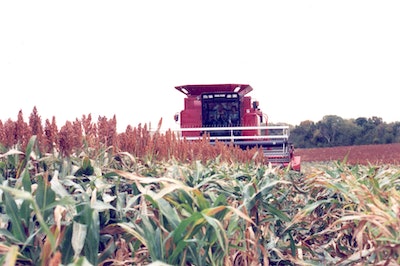
The word “sustainability” is increasingly being used to describe and evaluate agricultural operations, but the definition of the word can vary.
For many people in agriculture, no matter which particular sector it is, the overuse of the word can leave them feeling a little insecure about their stewardship and management practices, and even insecure about themselves.
A pair of leaders in the grain sorghum industry recently told a group of producers not to let what others say hurt your self-esteem, because if you are still in operation, you are an example of at least one definition of sustainable agriculture.
“Sustainability is one of those words where I don’t know if I can define it, but I recognize it when I see it,” Kent Winter, president of the Kansas Grain Sorghum Producers Association, said during the Sorghum U – Wheat U event, hosted by the High Plains Journal and held August 9 in Wichita, Kansas.
Winter spoke of a framed map of the township where he farms, and that map is dated 1905. It lists the names associated with the ownership of parcels of land shown on the map.
“Most of those (last) names on that map are still in operation today. When you get to thinking about it, those generations went through some tough times. They went through the ‘30s and those family names are still around. I think that’s a recognition of sustainability,” Winter said.
Craig Meeker, chairman of National Sorghum Producers, shared similar thoughts, which included an emotional recollection of being a student growing up during the 1980s farm crisis.
“I made it through the ’80s on farms because of the grit and determination of the people who came before me,” Meeker said.
“It wasn’t very fun to get to go to school sometimes when I didn’t have the same things the kids in town had, but you’re sustainable. Don’t let anybody tell you you’re not sustainable. What we’re doing today is passing this land and this way of life onto the next generation. You’re sustainable, and there’s ways that we’re going to learn and change and be more sustainable, but you’re dadgum sure sustainable. Don’t let that be a dirty word, because you are the epitome of sustainability.”


















